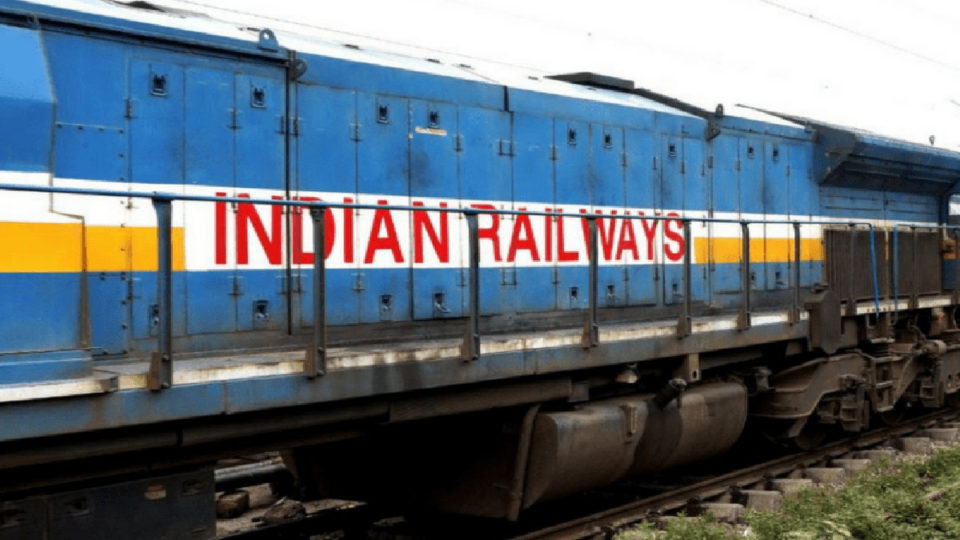The proposal to appoint a consultant to redevelopment Bhuj railway station in Gujarat; as called by Rail Land Development Authority (RLDA), a statutory body under railways ministry; will begin redevelopment under a public-private partnership model.
The consultant will have to conduct a feasibility study, finalize a detailed master planning, urban designing, engineering and preparation of a detailed project report for the redevelopment of Bhuj railway station. The last date for applying for participation in the bidding process is 12 August.
The government’s smart city project has allowed RLDA to redevelop 62 stations across the country. The total cost will be met by leveraging commercial development of the spare railway land around the station.
The collective cost to prepare a detailed project report o recondition Bhuj station is estimated at Rs 74.93 lakhs. RLDA Vice-Chairman Ved Parkash Dudeja said that the focuses are enhancing passenger experience with provision of modern amenities and state of the art at the stations, and providing ease.
Indian Railways has been focusing on modernization and transformation of key railway stations across the country and making them commercial hubs.
“The key objective of this project is upgrading the station building with a focus on improving the passenger experience. Providing adequate space for queuing at the ticket booking counters and the concourse hall and providing larger circulating areas are some of the major issues to be addressed at the station,” the statement said.
Other facilities in redevelopment are modern waiting rooms, parking areas, improved toilet facilities, passenger-friendly ticket booking offices and clean platforms.
RLDA was set up to develop vacant and unused railway land for commercial use and to generate revenue by non-tariff measures. Presently, RLDA is working on four types of projects – commercial projects, multi-functional complex, colony redevelopment and station redevelopment. Indian Railways has approximately 43,000 hectares of vacant land. Website information showed that land not needed for operational purposes in the foreseeable future would be identified by the zonal railways and the details thereof would be advised to Railway Board.
RELIANCE 1,204.70 -43.90 (-3.52%)  TCS 3,299.45 -104.45 (-3.07%)
TCS 3,299.45 -104.45 (-3.07%)  HDFCBANK 1,817.00 +23.30 (1.30%)
HDFCBANK 1,817.00 +23.30 (1.30%)  HINDUNILVR 2,244.45 -0.75 (-0.03%)
HINDUNILVR 2,244.45 -0.75 (-0.03%)  INFY 1,452.30 -44.70 (-2.99%)
INFY 1,452.30 -44.70 (-2.99%)  HDFC 2,729.95 -17.05 (-0.62%)
HDFC 2,729.95 -17.05 (-0.62%)  BHARTIARTL 1,743.25 -2.45 (-0.14%)
BHARTIARTL 1,743.25 -2.45 (-0.14%)  KOTAKBANK 2,132.95 +1.05 (0.05%)
KOTAKBANK 2,132.95 +1.05 (0.05%)  ICICIBANK 1,334.95 +5.95 (0.45%)
ICICIBANK 1,334.95 +5.95 (0.45%)  ITC 409.55 +0.25 (0.06%)
ITC 409.55 +0.25 (0.06%)  BAJFINANCE 8,720.85 +122.75 (1.43%)
BAJFINANCE 8,720.85 +122.75 (1.43%)  MARUTI 11,481.55 -201.25 (-1.72%)
MARUTI 11,481.55 -201.25 (-1.72%)  HCLTECH 1,421.80 -49.00 (-3.33%)
HCLTECH 1,421.80 -49.00 (-3.33%)  SBIN 767.80 -11.40 (-1.46%)
SBIN 767.80 -11.40 (-1.46%)  NESTLEIND 2,261.45 +14.30 (0.64%)
NESTLEIND 2,261.45 +14.30 (0.64%)  ASIANPAINT 2,355.05 +6.35 (0.27%)
ASIANPAINT 2,355.05 +6.35 (0.27%)  WIPRO 246.25 -10.15 (-3.96%)
WIPRO 246.25 -10.15 (-3.96%)  DMART 4,039.30 -117.10 (-2.82%)
DMART 4,039.30 -117.10 (-2.82%)  AXISBANK 1,089.50 -0.25 (-0.02%)
AXISBANK 1,089.50 -0.25 (-0.02%)  LT 3,259.20 -159.50 (-4.67%)
LT 3,259.20 -159.50 (-4.67%)  HDFCLIFE 689.10 -3.80 (-0.55%)
HDFCLIFE 689.10 -3.80 (-0.55%)  SUNPHARMA 1,709.40 -60.70 (-3.43%)
SUNPHARMA 1,709.40 -60.70 (-3.43%)  ULTRACEMCO 11,496.95 -110.85 (-0.95%)
ULTRACEMCO 11,496.95 -110.85 (-0.95%)  ONGC 226.00 -17.35 (-7.13%)
ONGC 226.00 -17.35 (-7.13%)  BAJAJFINSV 1,912.15 -8.70 (-0.45%)
BAJAJFINSV 1,912.15 -8.70 (-0.45%)  BPCL 279.40 -7.30 (-2.55%)
BPCL 279.40 -7.30 (-2.55%)  POWERGRID 293.80 -5.35 (-1.79%)
POWERGRID 293.80 -5.35 (-1.79%)  TITAN 3,076.15 -50.10 (-1.60%)
TITAN 3,076.15 -50.10 (-1.60%)  BRITANNIA 5,024.85 -50.75 (-1.00%)
BRITANNIA 5,024.85 -50.75 (-1.00%)  NTPC 350.45 -8.40 (-2.34%)
NTPC 350.45 -8.40 (-2.34%) 
 TCS 3,299.45 -104.45 (-3.07%)
TCS 3,299.45 -104.45 (-3.07%)  HDFCBANK 1,817.00 +23.30 (1.30%)
HDFCBANK 1,817.00 +23.30 (1.30%)  HINDUNILVR 2,244.45 -0.75 (-0.03%)
HINDUNILVR 2,244.45 -0.75 (-0.03%)  INFY 1,452.30 -44.70 (-2.99%)
INFY 1,452.30 -44.70 (-2.99%)  HDFC 2,729.95 -17.05 (-0.62%)
HDFC 2,729.95 -17.05 (-0.62%)  BHARTIARTL 1,743.25 -2.45 (-0.14%)
BHARTIARTL 1,743.25 -2.45 (-0.14%)  KOTAKBANK 2,132.95 +1.05 (0.05%)
KOTAKBANK 2,132.95 +1.05 (0.05%)  ICICIBANK 1,334.95 +5.95 (0.45%)
ICICIBANK 1,334.95 +5.95 (0.45%)  ITC 409.55 +0.25 (0.06%)
ITC 409.55 +0.25 (0.06%)  BAJFINANCE 8,720.85 +122.75 (1.43%)
BAJFINANCE 8,720.85 +122.75 (1.43%)  MARUTI 11,481.55 -201.25 (-1.72%)
MARUTI 11,481.55 -201.25 (-1.72%)  HCLTECH 1,421.80 -49.00 (-3.33%)
HCLTECH 1,421.80 -49.00 (-3.33%)  SBIN 767.80 -11.40 (-1.46%)
SBIN 767.80 -11.40 (-1.46%)  NESTLEIND 2,261.45 +14.30 (0.64%)
NESTLEIND 2,261.45 +14.30 (0.64%)  ASIANPAINT 2,355.05 +6.35 (0.27%)
ASIANPAINT 2,355.05 +6.35 (0.27%)  WIPRO 246.25 -10.15 (-3.96%)
WIPRO 246.25 -10.15 (-3.96%)  DMART 4,039.30 -117.10 (-2.82%)
DMART 4,039.30 -117.10 (-2.82%)  AXISBANK 1,089.50 -0.25 (-0.02%)
AXISBANK 1,089.50 -0.25 (-0.02%)  LT 3,259.20 -159.50 (-4.67%)
LT 3,259.20 -159.50 (-4.67%)  HDFCLIFE 689.10 -3.80 (-0.55%)
HDFCLIFE 689.10 -3.80 (-0.55%)  SUNPHARMA 1,709.40 -60.70 (-3.43%)
SUNPHARMA 1,709.40 -60.70 (-3.43%)  ULTRACEMCO 11,496.95 -110.85 (-0.95%)
ULTRACEMCO 11,496.95 -110.85 (-0.95%)  ONGC 226.00 -17.35 (-7.13%)
ONGC 226.00 -17.35 (-7.13%)  BAJAJFINSV 1,912.15 -8.70 (-0.45%)
BAJAJFINSV 1,912.15 -8.70 (-0.45%)  BPCL 279.40 -7.30 (-2.55%)
BPCL 279.40 -7.30 (-2.55%)  POWERGRID 293.80 -5.35 (-1.79%)
POWERGRID 293.80 -5.35 (-1.79%)  TITAN 3,076.15 -50.10 (-1.60%)
TITAN 3,076.15 -50.10 (-1.60%)  BRITANNIA 5,024.85 -50.75 (-1.00%)
BRITANNIA 5,024.85 -50.75 (-1.00%)  NTPC 350.45 -8.40 (-2.34%)
NTPC 350.45 -8.40 (-2.34%) 




